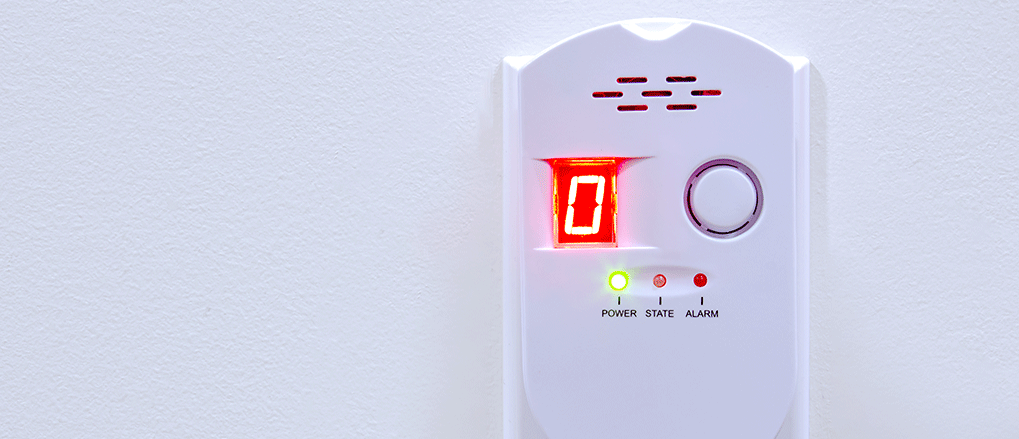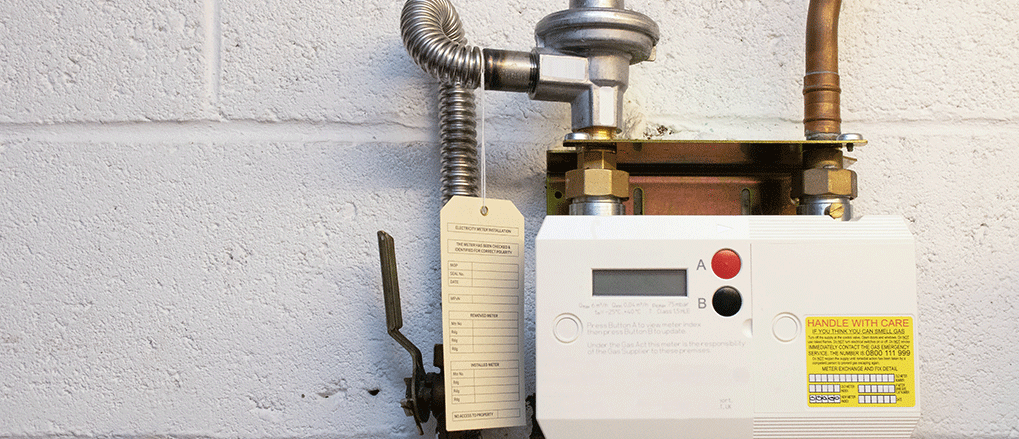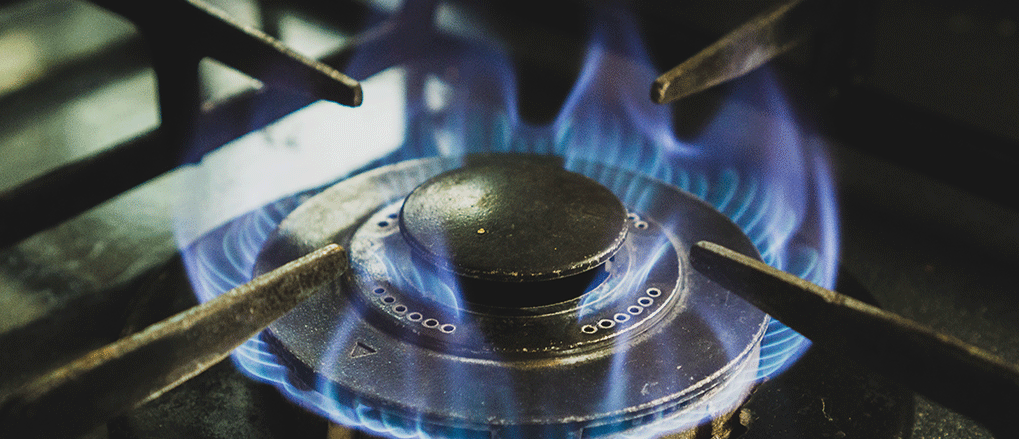Having natural gas in your house, building or commercial property can be incredibly dangerous and even fatal to those in the property. The risks that are associated with natural gas are endless, such as explosions, inhaling gas, and more. This is why natural gas detectors are important and, depending on your state, mandated for buildings.
But most people realize they don’t know much about natural gas detectors, such as what kinds are out there and what type you need. That’s why in this article we are going to break down everything you should know about natural gas detectors.
Without waiting any longer, let’s talk about it.
What is a Natural Gas Detector?
To understand what a natural gas detector is, let’s first talk about what a natural gas detector is not. A natural gas detector functions similar to a carbon monoxide and fire alarm, but is not the same thing. Many think they are all-in-one, but they are not. A natural gas detector works to find gas leaks in your building. This helps prevent a huge danger.
How does a Natural Gas Detector Work?

A natural gas detector works very similarly to the way a fire alarm system or a carbon monoxide detector works. It’s a sensor that detects and alerts when there is natural gas in the building/area. There are different types of natural gas detectors out there that work differently in the way that they detect the gas.
When the natural gas detector gets set off due to the natural gas present, it will alert those in the building, and it will likely alert authorities that can help the situation.
Benefits of a Natural Gas Detector
When it comes to your safety, a natural gas detector is the best way to prevent harm in these situations. This is why it is the number one benefit of having a natural gas detector in the first place. While there are other benefits that we will get into, safety is the main theme.
Protect the People
Whether you are a business or a residential home, there is the possibility of having a gas leak. The inhalation of constant gas is dangerous but more important people inside during a gas leak can be exposed to the danger of an explosion causing injury or worse fatalities.
While this is important when we are thinking of our families, it is doubly important when we run a business and ask employees to come to work. This is a good way to ensure their safety.
You are also protecting nearby neighbors if the gas explosion led to fires. It becomes an all-around layer of protection for those nearby.
Protect the Property
Protecting the property is also an important safety factor. If the gas lead does lead to fires and explosions, the property will suffer damage. If it is a business it can lead to huge down-the-road expenses if certain information or technology is lost.
Long-term Investment
In an absolute worst-case scenario of a gas leak, an explosion can happen. In this event, a lot of the property can be lost or injuries can occur. While there is an upfront cost to the detectors, the money, and insurance that can be saved down the road when you have one installed in the first place is priceless.
Types of Natural Gas Detectors
Now that the benefits seem to outweigh any costs that would come with getting one set up, it is important to understand there are different types of natural gas detectors on the market. Before we talk about which one you may prefer, let’s list out the options.
Catalytic Sensor
A catalytic sensor uses heat to detect whether there is gas present. Because gas oxidizes and produces heat, this sensor can pick up on the temperature change and recognize there is gas present.
Infrared Sensor
Infrared sensors work by firing out beams of infrared light into their air. If there is gas present, the beam will be able to detect it based on whether the wavelengths become absorbed or deflected from the sensor.
Ultrasonic Gas Detectors
Ultrasonic gas detectors are very specific to leaks and are great at picking them up because of their ability to hear the sound that a gas leak will make. Ultrasonic gas detectors are so good they can hear a blink of an eye.
Metal-Oxide Semiconductors
These sensors are typically used in working fields as they detect how much gas is present. In particular, the gases of carbon monoxide and nitrogen dioxide. We see this less in residential areas, except for carbon monoxide detectors.
Electrochemical Detectors
These guys measure the concentration of harmful or toxic gases through the process of oxidation. The reactions produce positive or negative currents through the flow, which the detector will pick up on.
The Most Commonly Used Natural Gas Detector

The most commonly used natural gas detectors are catalytic sensors and infrared sensors. These are affordable and reliable methods for detecting natural gas that can be used in both commercial and residential properties. The other methods work as well, but maybe more industry-specific types of natural gas detectors.
To review:
A catalytic sensor has a wire that is made out of platinum that is used to detect natural gases in the air. When the gas hits the surface of the sensor, a reaction is created, producing a heat exchange result. This sets off the sensor to let the residents know there is present natural gas.
An infrared sensor uses wavelengths to detect whether a negative or positive reaction happens with the beams and the air or natural gas that is present in the room. When gas is present the light sensors become disrupted signaling gas is present.
Risks of Having a Natural Gas Detector

When it comes to the risks of having a natural gas detector in your building, there aren’t many. You take on more risks by not having one in your building, by having one. The only two risks we can digest here are the investment and poor installation.
Let’s talk a little more about this.
Investment
As with anything, a natural gas detector comes with an expense. You may feel like it’s another kind of alarm that you don’t want to incorporate with the rest of your alarms. While it is a relatively easy install, the investment is nothing in comparison to the safety and benefits you get from having one.
Poor Setup
If you do make the investment, but you don’t have the system installed in the property now, you run a few different risks. First, your investment becomes a waste and second of all you improve a lot of danger to the building and everyone. While errors happen, there should be a professional team installing the system because there are large consequences for a job not well done.
Natural Gas Detector FAQs
Natural gas is something that is not talked about often, but also something quite scary now that we have read about it a little. It is better to understand it and ask the questions that you need answers to feel a little more comfortable about your situation and how to best handle it. That’s why this section is dedicated to the more frequently asked questions about natural gas detectors. Anything that you feel is not answered here can be directed to a member of our security team at Circles Security Solutions.
What do I do if natural gas is detected?
If natural detectors go off, immediately leave the building as well as alerting anyone in the property to leave as well. Call authorities, although likely authorities have already been altered. From here, a team will come to find out where the leak is coming from and plug it. It is imperative to leave for the reasons not only inhaling the gas but if a fire were to happen the building could have an explosion. When a detector goes off, it is an imminent threat and imperative that people leave as quickly as possible.
Are natural gas detectors required?
For commercial properties, natural gas detectors are required throughout the building alongside many of the other detectors. While residential properties are not mandated the same thing, residential properties need to have them based on the information above.
Because they differ from your carbon monoxide and your fire alarm, it is important to look at the natural gas detector as an addition to your safety and security system. The benefits outweigh little to no drawbacks.
Is natural gas toxic?
While natural gas is not toxic, it can impose several problems. The biggest concern is the imminent threat of explosion when met with fire. However, it can also cause suffocation in confined spaces. While sometimes the human nose or ears can detect the smell and the sounds of natural gas, it can go unnoticed. This is why it is dangerous, and a detector is needed.
What appliances use natural gas?
There are a lot of different appliances that use natural gas such as ovens, stoves, water heaters, space heaters, and many more. While some homes use oil to heat their homes and use their ovens and other household products, many homes today run on gas. While generally safe, natural gas as we know it is flammable.
This is why many of the gas leaks do come from ovens or appliances and are most detected in kitchens.
Circle Security Solutions Product Showcase
When it comes to getting a quality natural gas detector, we have you covered at Circle Security Solutions. It is a scary thing to deal with natural gas leaks, which is why we want to help you present them. Starting with helping construct a good layout and plan to incorporate your residential or commercial natural gas detector needs and furnishing with the installation and maintenance if needed.
We must be with you every step of the way, so feel free to reach out with questions and get started today!
Don’t Wait to Start
Are you on the fence still? Naturally, we understand, especially if you are a residential unit. If you are a commercial business then it is best for your employees, and you’re building to get them installed as soon as possible. While they aren’t mandated for residential properties, the benefits of keeping everyone safe from the dangers of a natural gas leak outweigh any potential cost in getting one and installing one.
You’re already familiar with how they work because they function very similarly to the fire alarm system and carbon monoxide detectors you have already installed. The three can work together to present damage and alert trained authorities in situations where there is danger.
That’s why you can call us right now at Circle Security Solutions, so we can get you up and running as soon as possible.


